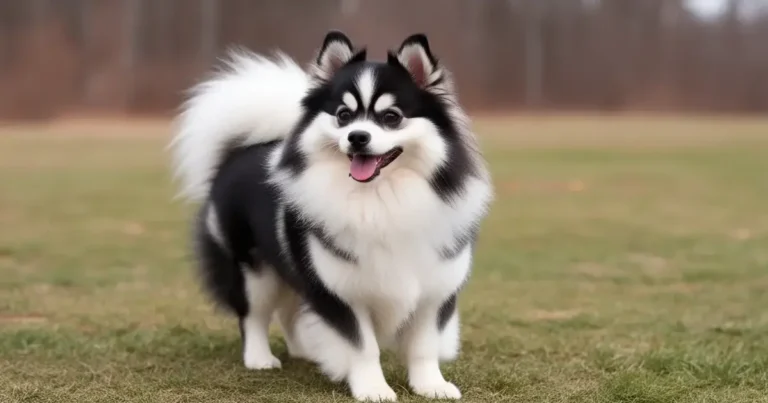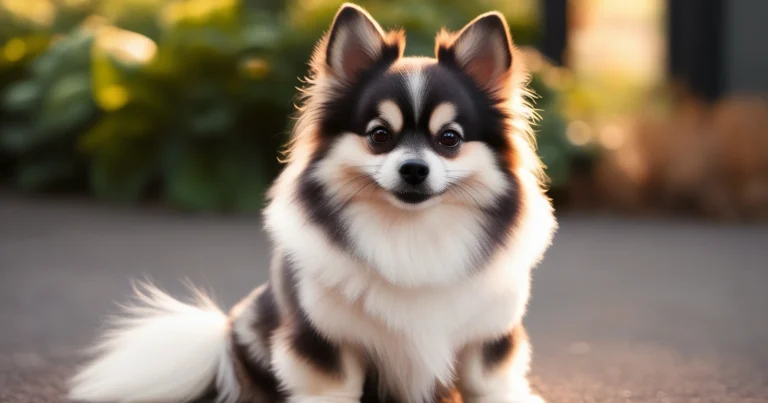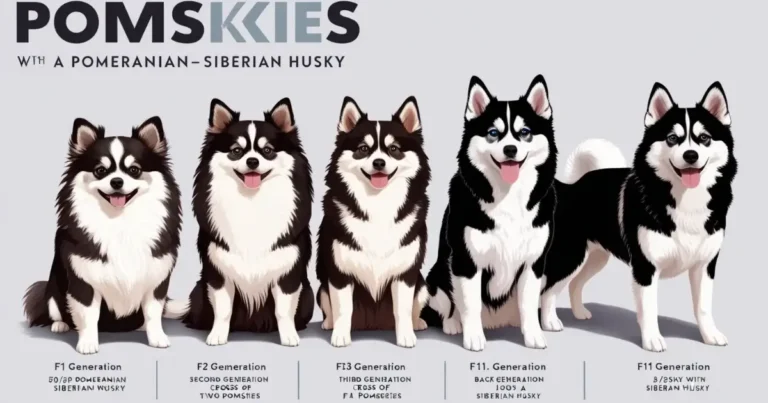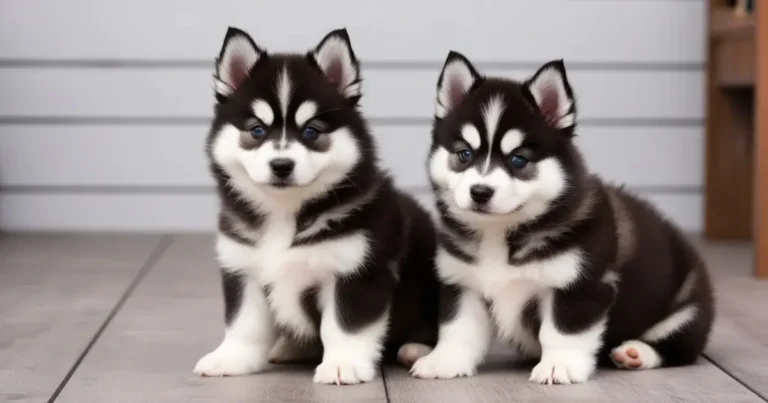Discover Pomsky Intelligence: How Smart and Trainable Are They
Pomskies are a unique crossbreed, blending the charm of a Pomeranian with the adventurous spirit of a Siberian Husky. This combination brings both intelligence and strong character. With their mix of traits, Pomsky intelligence is often high, yet training them can sometimes require extra patience. This guide will cover how smart Pomskies are and how well they respond to training.
Table of Contents
Understanding the Intelligence of Pomskies
Pomsky Breed Origins and Intelligence Traits
Pomskies inherit characteristics from both parent breeds, impacting Pomsky learning ability. Pomeranians are known for loyalty and a desire to please, making them quick to learn new things. Huskies are smart but have a more independent nature, which sometimes makes them stubborn. Together, these traits make Pomskies intelligent but also curious and strong-willed. This combination means they are generally smart, but training requires an approach that respects their unique personality.

Pomsky’s Cognitive Abilities
Many Pomskies pick up commands quickly, especially when learning is fun and engaging. They respond well to puzzles and interactive toys that challenge their mind. This helps build their Pomsky intelligence by developing problem-solving and memory skills. While they enjoy learning, they may lose interest if the training is too repetitive. Changing up the routine helps keep them engaged and motivated.
Comparison with Other Breeds
Pomskies rank well in intelligence compared to similar breeds. They show adaptability and mental agility that compare to breeds like Border Collies or Poodles. However, their occasional stubbornness sets them apart from breeds that are naturally obedient. This independent streak requires patience but makes training more rewarding once they start to respond well.
Factors Affecting Pomsky Trainability
Temperament and Personality Influences
The blend of Husky and Pomeranian traits gives Pomskies a distinct personality. Huskies often display independence, while Pomeranians have a strong bond with their owners. This mix can make Pomskies both attentive and willful. Because of these traits, the trainability of Pomskies often depends on consistency and a calm, patient approach. Keeping training positive builds trust and cooperation.
Common Training Challenges for Pomskies
Pomskies are energetic, which can sometimes make focusing a challenge. Their high curiosity may lead to distractions, especially in new environments. They may also become stubborn, especially if commands are too repetitive or boring. For training to be effective, it’s essential to address these challenges with patience. Consistent training sessions help build their discipline and responsiveness.
Tailoring Training Methods to Individual Pomsky Personalities
Not every Pomsky learns the same way. Some may take after their Husky parent, needing motivation, while others show more eagerness, like Pomeranians. Recognizing these personality traits makes training easier. For highly energetic Pomskies, consider starting with play before training to help them focus. Using treats or praise with calmer Pomskies can also help with effective training.
Effective Techniques for Training a Pomsky
Positive Reinforcement: Key to Training Pomskies
Teaching a Pomsky commands with positive reinforcement helps them learn effectively. Rewards like treats, praise, or playtime encourage them to repeat good behavior. This approach builds trust, keeps training enjoyable, and ensures they respond well to commands. Because Pomskies are sensitive, positive reinforcement strengthens the bond and helps them feel secure while learning.
Importance of Early Socialization
Socialization is essential to raising a confident, well-adjusted Pomsky. Early exposure to different environments, people, and animals helps them become more adaptable. This can reduce anxiety and excessive barking as they grow. Introducing your Pomsky to new places and experiences helps improve the trainability of Pomskies and makes them more comfortable in various situations.
Teaching Basic Commands and Consistency Tips
Consistency is important when teaching a Pomsky commands like “sit,” “stay,” or “come.” Use simple language and stick to the same commands. Keep sessions short and positive, focusing on one command at a time. Regular practice builds their confidence and reinforces learning. Shorter, frequent sessions prevent boredom and make training more effective.
Tools and Techniques for Engaging Training Sessions
Interactive training sessions keep Pomskies interested. Crate training offers a safe, calming space, helping with behaviors like separation anxiety. Puzzle toys or treat-dispensing games make learning fun and keep Pomskies engaged. Training games, like fetch or hide-and-seek, are also helpful for keeping them active and mentally stimulated.
Are Pomskies Easy to Train?
Evaluating Pomsky Training Ease for First-Time Dog Owners
For first-time dog owners, Are Pomskies easy to train? They’re smart but need consistent training, which might require more patience for new owners. Their intelligence makes them responsive, yet their stubborn side can be challenging without a steady training routine. First-time owners should focus on learning basic training techniques to guide their Pomsky’s behavior.

Pros and Cons of Professional vs. Home Training
Professional training is a good choice, especially if time is limited or behavior issues need expert attention. Trainers experienced with Pomskies understand their specific needs and can offer structured programs. Home training can be beneficial for bonding, as it allows the owner to set the training pace. Choosing between home and professional training depends on availability and the Pomsky’s specific personality.
Health and Physical Considerations in Pomsky Training
How Health Impacts Trainability
Health plays a significant role in Pomsky learning ability. Some Pomskies have health concerns, like hip dysplasia or eye issues, which can impact training. For example, a Pomsky with joint issues may need shorter, gentler training exercises. Regular vet check-ups ensure that any health needs are addressed early, making training more effective.
Maintaining Mental and Physical Wellbeing
Good physical and mental health supports Pomsky learning. Adequate exercise, balanced nutrition, and regular mental stimulation contribute to a Pomsky’s focus and energy during training. Keeping them healthy makes training smoother and helps them become more attentive and happy. A well-cared-for Pomsky learns more easily and remains active and engaged.
Conclusion: How to Bring Out the Best in Your Pomsky
Training a Pomsky is rewarding with the right approach. Their Pomsky intelligence and eagerness to learn make them responsive with consistency, patience, and positive reinforcement. Adapt training to their unique traits, and they will grow into well-behaved, joyful companions. With dedicated care, your Pomsky will become a loyal, loving friend who brings happiness for years to come.
FAQs
What methods are best for teaching a Pomsky commands?
Using positive reinforcement, such as treats and praise, works best for teaching a Pomsky commands. Pomskies respond well to short, engaging sessions that keep them motivated and help build their focus and obedience over time.
Why is socialization important for the trainability of Pomskies?
Early socialization improves the trainability of Pomskies by reducing anxiety and helping them feel comfortable around people and animals. Exposing them to various environments helps them develop into adaptable, well-mannered pets.
Are Pomskies easy to train for first-time dog owners?
Are Pomskies easy to train? For first-time owners, they can be a bit challenging due to their Husky-like independence. With consistency and patience, though, new owners can teach Pomskies basic commands and manage their high energy.
How does Pomsky learning ability affect their behavior as pets?
With strong Pomsky learning ability, these dogs quickly grasp commands and routines. This makes them attentive, engaging pets who bond well with their families, especially when they receive consistent training that keeps their minds active.







